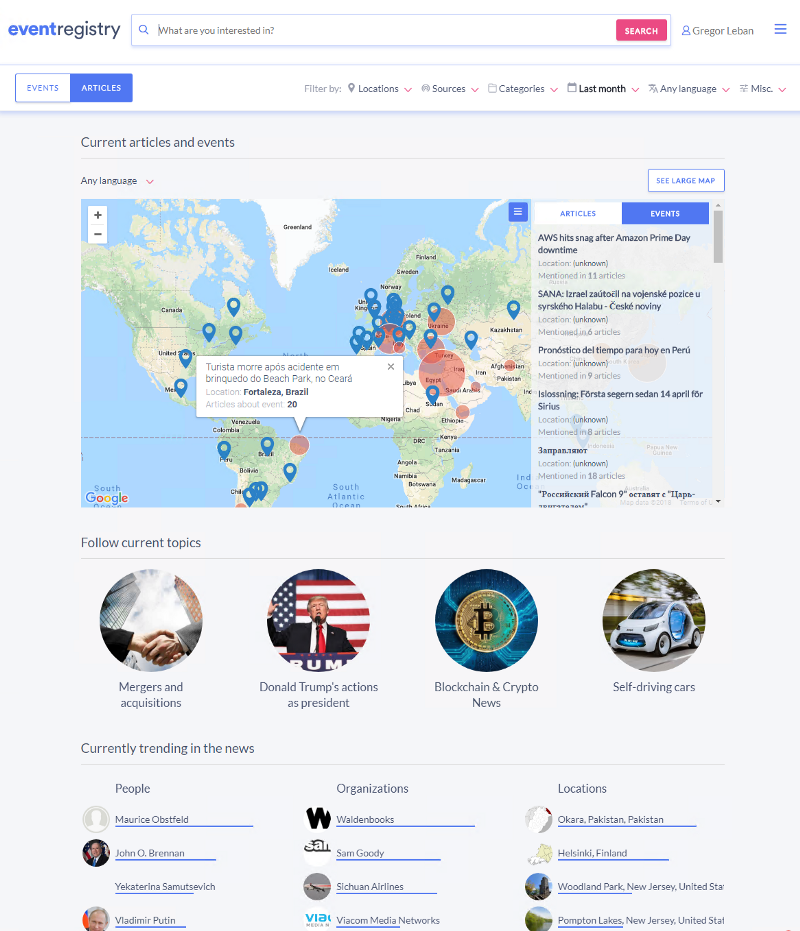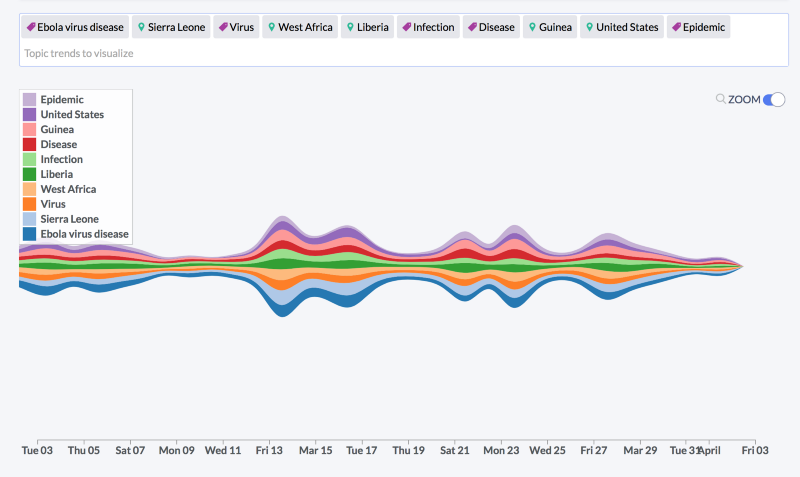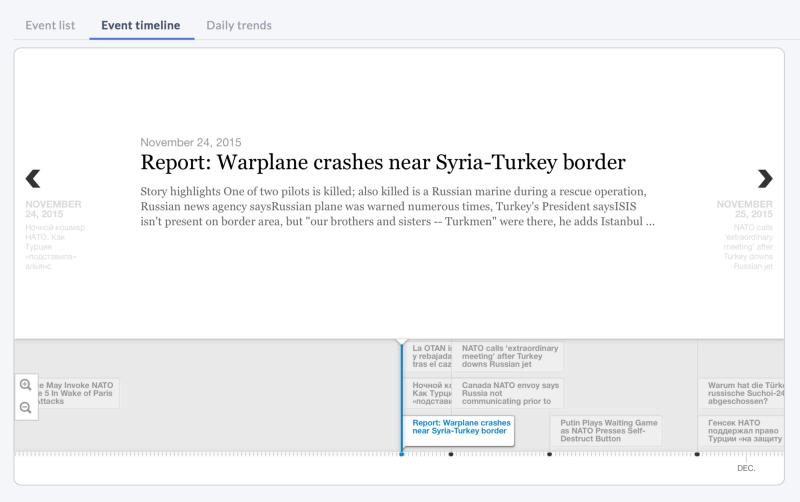New to Event Registry?
This is Event registry official blog where we will try to demonstrate what Event Registry does and how you can use it.

This is Event registry official blog where we will try to demonstrate what Event Registry does and how you can use it.
So, what is Event Registry?
In short, Event Registry is a system for global media monitoring.
It starts by collecting news articles from over 35.000 news sources published globally in different languages. Collected articles are first annotated by identifying mentions of people, locations, organisations as well as relevant topics in them. An online clustering approach is then used to identify groups of news articles that are discussing the same event. An event for us is simply something that is being reported in several news articles. When an event is identified, we try to identify from its articles where it happened, when, who was involved, what it is about, etc. All the information about the event is then stored and can be accessed through the web interface. Here is how the home page looks like.

Btw, did we mention that all this is done automatically?
Event Registry can be used for different purposes, depending on who you are and what you are looking for. If you’re a news publisher you might want to detect new events as soon as they happen. In this case, you could open a map of all new/updated events or choose a specific feed of events related only to a particular topic (for example, events related to Barack Obama).
If you are a researcher or simply curious about the past events you can open the search page and use the extensive set of search options to identify events relevant to you. You can find events about a particular topic (such as Ebola, Apple, or refugees), events that happened in particular city or country (e.g. London), events that have been reported by a particular news publisher (e.g. The Guardian), events based on date (example) and many more. When you find your events you can visualize them in numerous ways — some examples include the tag cloud, timeline, source locations, and categories. An example of such a visualization is below.

details about a particular event. Learn, for example, all about how Turkey shoot down the Russian airplane or about Donald Trump’s capacity for mature behavior. A unique feature that you will notice is that for both events you can read articles about them in several languages. For each event, you can also view various visualizations, such as the list of top related concepts, a tag cloud, timeline of reporting, location of news sources, and related events. Below is, for example, the timeline of events related to the event where the Russian plane crashed.

If you don’t care so much about events but instead would like to find specific articles, you can of course also use the search page for articles. There you’ll be able to find news articles based on various conditions and also aggregate and visualize results in numerous ways.
With Event Registry you can also learn about trending topics, articles or events, detect correlations in the data, find most shared content on social media and many more things — but let’s keep some things for the future posts.
API access to the data
In case you would like to do some custom analysis of the data, you can also access it through the available API. We currently provide a Python library that makes data access very easy. The library can be obtained on GitHub or by using pip to install the eventregistry module. Regardless how you install it, I suggest you start by reading the module documentation.
